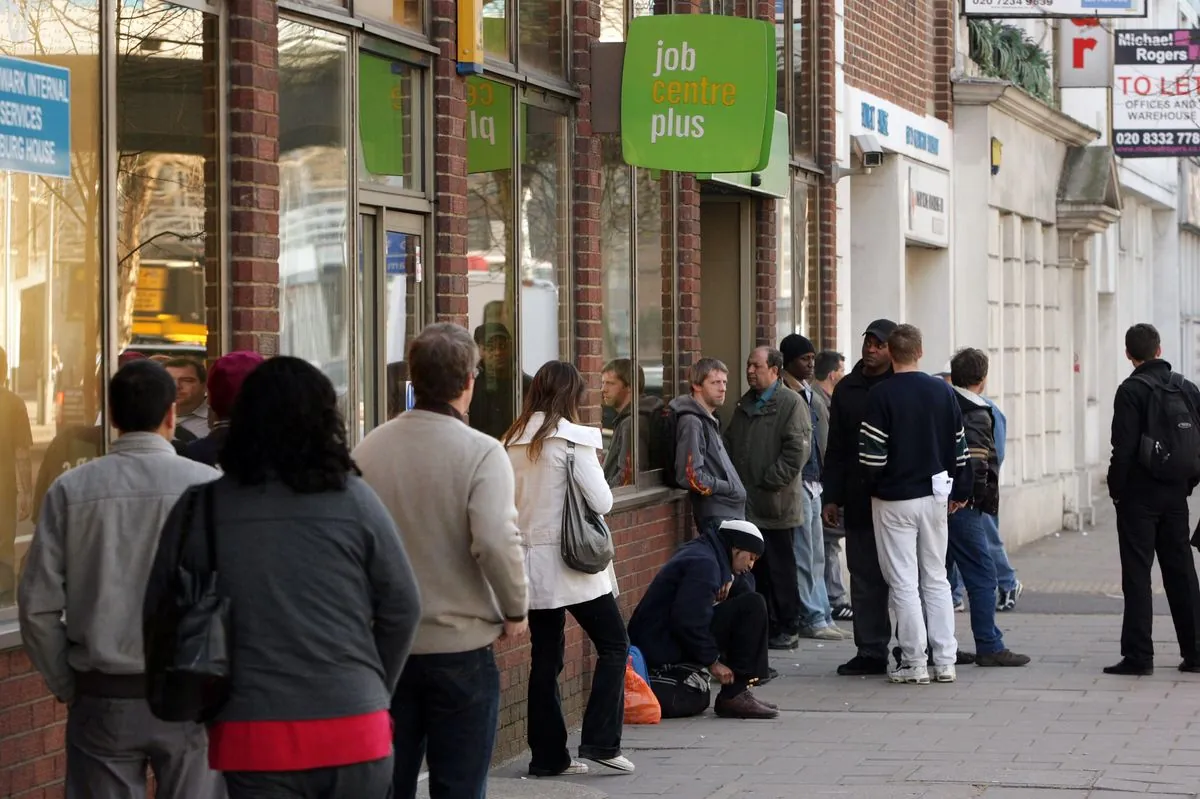The United Kingdom is grappling with a significant worklessness crisis, resulting in a £16 billion annual cost to taxpayers through lost tax revenue and increased benefit payments. This situation, unique among developed nations, has placed the UK in a precarious economic position.
According to a report by the Institute for Employment Studies (IES) and the Commission on the Future of Employment Support, the UK's workforce is diminishing at the fastest rate since the "Lawson boom and bust" of the late 1980s and early 1990s. This decline has led to a substantial shortfall in employment-related taxes and a spike in benefit claims due to ill-health.
The UK's employment landscape stands in stark contrast to other major economies. While most nations have experienced a strong post-pandemic employment recovery, the UK has seen its employment rate fall over the past four years. This decline has caused the UK to slip from having the eighth-highest employment rate among developed countries to fifteenth place.
The economic impact of this crisis is substantial. If the UK had matched the performance of other countries, its economy would be £25 billion larger, with the government benefiting from £16 billion more annually. This amount could potentially address a significant portion of the £22 billion deficit identified by Chancellor Rachel Reeves.
Tony Wilson, director of the IES, highlights a concerning trend among young adults. Approximately 680,000 individuals have never worked due to poor health, an increase of 230,000 since the pandemic began. Most of these are under 30, suggesting they left education but never entered the job market. Mental health issues are a particular concern in this demographic.
"The figures are clear: we have got an increase in the number of people, particularly young people, who have never worked, and who say that the main reason they are not working is because of poor health. There are particular challenges around mental health."
The UK's labor market has unique characteristics that may contribute to this situation. While the UK has one of the highest minimum wages among OECD countries and a flexible labor market compared to many European counterparts, it also faces challenges such as a significant gig economy, an aging population, and a skills gap in certain sectors, particularly STEM fields.
The report suggests that current policies may be exacerbating the problem. Stringent conditions imposed on jobseekers might be pushing people towards claiming sickness benefits rather than encouraging them to seek work. This approach could be counterproductive, especially for those with health conditions who may feel unable to engage with Jobcentre Plus due to significant requirements.
To address these issues, the report recommends overhauling the jobs and benefits system. Suggestions include reducing conditions imposed on benefit-claiming jobseekers and providing more support for over-50s to return to work. These measures aim to encourage more people back into employment and reduce long-term worklessness.
The government has acknowledged the severity of the situation. A spokesperson stated, "Spiralling inactivity and millions of people being denied the support and opportunities they need is holding the country back and stifling the economy." They emphasized plans to overhaul jobcentres and empower local areas to tackle inactivity.
Mubin Haq, chief executive of the abrdn Financial Fairness Trust and a commissioner behind the report, argues for increased investment in employment support. He believes that such spending would ultimately benefit the public purse, stating, "The UK desperately needs economic growth and one of the critical ways to deliver that is increasing the number of people in work."
As the UK navigates this unique challenge, addressing the worklessness crisis remains crucial for economic growth, public finances, and improving living standards across the nation.
